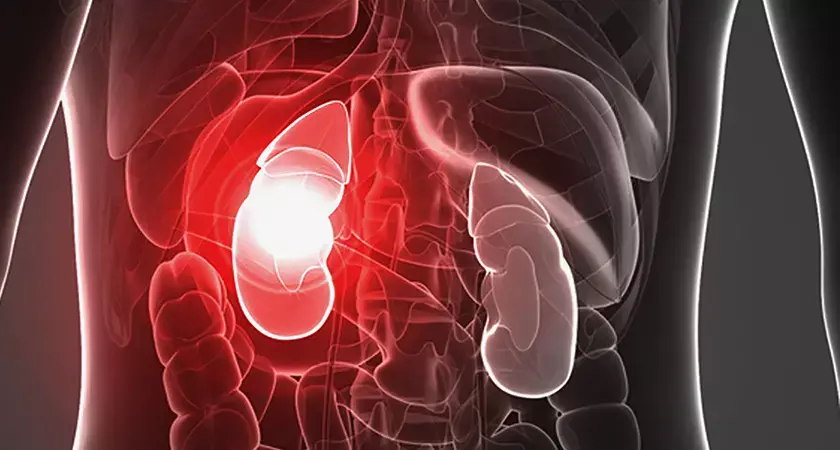- Home
- Medical news & Guidelines
- Anesthesiology
- Cardiology and CTVS
- Critical Care
- Dentistry
- Dermatology
- Diabetes and Endocrinology
- ENT
- Gastroenterology
- Medicine
- Nephrology
- Neurology
- Obstretics-Gynaecology
- Oncology
- Ophthalmology
- Orthopaedics
- Pediatrics-Neonatology
- Psychiatry
- Pulmonology
- Radiology
- Surgery
- Urology
- Laboratory Medicine
- Diet
- Nursing
- Paramedical
- Physiotherapy
- Health news
- Fact Check
- Bone Health Fact Check
- Brain Health Fact Check
- Cancer Related Fact Check
- Child Care Fact Check
- Dental and oral health fact check
- Diabetes and metabolic health fact check
- Diet and Nutrition Fact Check
- Eye and ENT Care Fact Check
- Fitness fact check
- Gut health fact check
- Heart health fact check
- Kidney health fact check
- Medical education fact check
- Men's health fact check
- Respiratory fact check
- Skin and hair care fact check
- Vaccine and Immunization fact check
- Women's health fact check
- AYUSH
- State News
- Andaman and Nicobar Islands
- Andhra Pradesh
- Arunachal Pradesh
- Assam
- Bihar
- Chandigarh
- Chattisgarh
- Dadra and Nagar Haveli
- Daman and Diu
- Delhi
- Goa
- Gujarat
- Haryana
- Himachal Pradesh
- Jammu & Kashmir
- Jharkhand
- Karnataka
- Kerala
- Ladakh
- Lakshadweep
- Madhya Pradesh
- Maharashtra
- Manipur
- Meghalaya
- Mizoram
- Nagaland
- Odisha
- Puducherry
- Punjab
- Rajasthan
- Sikkim
- Tamil Nadu
- Telangana
- Tripura
- Uttar Pradesh
- Uttrakhand
- West Bengal
- Medical Education
- Industry
AKI during diabetic ketoacidosis may Increase Risk of Microalbuminuria: JAMA

Diabetes is an important cause of end-stage kidney disease worldwide, but risk factors for kidney dysfunction resulting from type 1 diabetes (T1D) remain incompletely defined. Diabetic ketoacidosis (DKA) occurs commonly in children with T1D, and acute kidney injury (AKI) occurs in 43% to 64% of DKA episodes. In a recent study, researchers have found a previously unrecognized risk factor for diabetic kidney disease and suggest that even greater efforts should be made to prevent DKA and the occurrence of acute kidney injury during DKA. The study findings were published in the journal JAMA Pediatrics on November 29, 2021.
Microalbuminuria is the earliest manifestation of diabetic nephropathy and a key risk factor for progression to proteinuria in patients with T1D. However, the relationship between DKA in children and the future development of microalbuminuria remains understudied. Therefore, Dr Jia Xin Huang and her team conducted a study to determine whether episodes of AKI occurring during DKA in children are associated with an increased risk of development of microalbuminuria.
In this retrospective review, the researchers included 2345 children with type 1 diabetes with 1 or more urine albumin levels measured during routine diabetes care from 2 university-affiliated urban tertiary children's hospitals in the United States. They analyzed age at diagnosis of diabetes, hemoglobin A1c levels, episodes of DKA, pH and creatinine levels during DKA, and urine albumin and creatinine measurement. They used Cox proportional hazards regression models to identify variables affecting the hazard rate for microalbuminuria development. The researchers evaluated episodes of DKA and episodes of AKI occurring during DKA. They determined AKI occurrence and AKI stage from serum creatinine measurements during DKA using Kidney Disease: Improving Global Outcomes criteria. Microalbuminuria was defined as urine albumin-to-creatinine ratio of 30 mg/g or more or excretion of 30 mg or more of albumin in 24 hours.
Key findings of the study:
- Among 2345 children, the researchers observed that one or more episodes of DKA occurred in 963 children (41%), and AKI occurred during DKA in 560 episodes (47%).
- Upon multivariable models adjusting for the associations of age at diagnosis and mean hemoglobin A1c level since diagnosis, they found that each episode of AKI during DKA was associated with a hazard ratio of 1.56 for the development of microalbuminuria.
- They noted that four or more episodes increased the hazard rate by more than 5-fold.
- They further noted that DKA episodes without AKI did not significantly increase the hazard rate for microalbuminuria development after adjusting for other covariates.
The authors concluded, "These data demonstrate that episodes of AKI occurring during DKA in children with type 1 diabetes are significantly associated with risk of developing microalbuminuria. Greater efforts are necessary to reduce the frequency of DKA."
For further information:
Medical Dialogues Bureau consists of a team of passionate medical/scientific writers, led by doctors and healthcare researchers. Our team efforts to bring you updated and timely news about the important happenings of the medical and healthcare sector. Our editorial team can be reached at editorial@medicaldialogues.in.
Dr Kamal Kant Kohli-MBBS, DTCD- a chest specialist with more than 30 years of practice and a flair for writing clinical articles, Dr Kamal Kant Kohli joined Medical Dialogues as a Chief Editor of Medical News. Besides writing articles, as an editor, he proofreads and verifies all the medical content published on Medical Dialogues including those coming from journals, studies,medical conferences,guidelines etc. Email: drkohli@medicaldialogues.in. Contact no. 011-43720751


